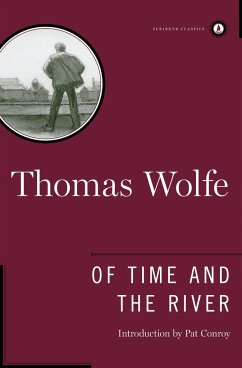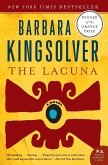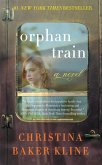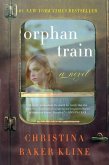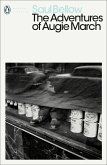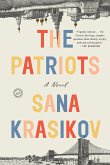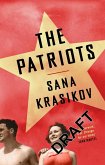The sequel to Thomas Wolfe's remarkable first novel, "Look Homeward, Angel, Of Time and the River" is one of the great classics of American literature. The book chronicles the maturing of Wolfe's autobiographical character, Eugene Gant, in his desperate search for fulfillment, making his way from small-town North Carolina to the wider world of Harvard University, New York City, and Europe. In a massive, ambitious, and boldly passionate novel, Wolfe examines the passing of time and the nature of the creative process, as Gant slowly but ecstatically embraces the urban life, recognizing it as a necessary ordeal for the birth of his creative genius as a writer. The work of an exceptionally expressive writer of fertile imagination and startling emotional intensity, "Of Time and the River" illuminates universal truths about art and life, city and country, past and present. It is a novel that is majestic and enduring. As P. M. Jack observed in "The New York Times," "It is a triumphant demonstration that Thomas Wolfe has the stamina to produce a magnificent epic of American life." This edition, published in celebration of Wolfe's centennial anniversary, contains a new introduction by Pat Conroy.
Erste Neuübersetzung seit 75 Jahren
Ein amerikanisches Epos, das seinesgleichen sucht eine hymnische Daseinsfeier und das faszinierende Bekenntnis einer überschwänglichen, allumspannenden Künstlerseele. Thomas Wolfes "Von Zeit und Fluss" ist ein Herzensbuch für alle Suchenden und Sehnenden, ob jung oder alt, eine Meditation über die Geschicke des Menschenlebens über Bestand und Unbestand, Endlichkeit und Dauer.
Eugene, lebenshungrig und unerfahren, ist auf der Suche nach sich selbst, nach seinem Bestimmungsort in der Welt. In Harvard und im New York der Zwanzigerjahre sammelt er erste Erfahrungen, lernt zu lieben, zu erkennen, zu denken, sich von falschen Vorbildern loszusagen und sich dabei selbst treu zu bleiben. Bloß keine Erstarrung in Routinen alles in seiner reifenden Seele ist noch im Werden, in permanenter Umgestaltung. Der Held macht sich auf nach Paris, doch auch an diesem Sehnsuchtsort lässt ihn sein abenteuerliches Herz keine Ruhe finden. Was Eugene antreibt undwas er sich über alle Wechselfälle des Lebens hinweg erhält, ist der Hunger nach Erkenntnis und sinnlichem Genuss. So folgen aus seiner Selbstsuche philosophisch und spirituell höchst anregende Reflexionen über das menschliche Dasein über Sein und Werden, Zeit und Fluss.
Hinweis: Dieser Artikel kann nur an eine deutsche Lieferadresse ausgeliefert werden.
Erste Neuübersetzung seit 75 Jahren
Ein amerikanisches Epos, das seinesgleichen sucht eine hymnische Daseinsfeier und das faszinierende Bekenntnis einer überschwänglichen, allumspannenden Künstlerseele. Thomas Wolfes "Von Zeit und Fluss" ist ein Herzensbuch für alle Suchenden und Sehnenden, ob jung oder alt, eine Meditation über die Geschicke des Menschenlebens über Bestand und Unbestand, Endlichkeit und Dauer.
Eugene, lebenshungrig und unerfahren, ist auf der Suche nach sich selbst, nach seinem Bestimmungsort in der Welt. In Harvard und im New York der Zwanzigerjahre sammelt er erste Erfahrungen, lernt zu lieben, zu erkennen, zu denken, sich von falschen Vorbildern loszusagen und sich dabei selbst treu zu bleiben. Bloß keine Erstarrung in Routinen alles in seiner reifenden Seele ist noch im Werden, in permanenter Umgestaltung. Der Held macht sich auf nach Paris, doch auch an diesem Sehnsuchtsort lässt ihn sein abenteuerliches Herz keine Ruhe finden. Was Eugene antreibt undwas er sich über alle Wechselfälle des Lebens hinweg erhält, ist der Hunger nach Erkenntnis und sinnlichem Genuss. So folgen aus seiner Selbstsuche philosophisch und spirituell höchst anregende Reflexionen über das menschliche Dasein über Sein und Werden, Zeit und Fluss.
Hinweis: Dieser Artikel kann nur an eine deutsche Lieferadresse ausgeliefert werden.
"Ein wuchtiges Werk... Der Übersetzerin Irma Wehrli gelingt es eindrucksvoll, das ganz eigene Pathos und den vibrierenden existenziellen Druck auch auf Deutsch zu vermitteln." Maike Albath, Deutschlandradio Kultur
"In 1949, when I was sixteen, I stumbled on Thomas Wolfe, who died at thirty-eight in 1938, and who made numerous adolescents aside from me devotees of literature for life. In Wolfe, everything was heroically outsized, whether it was the voracious appetite for experience of Eugene Gant, the hero of his first two novels, or of George Webber, the hero of his last two. The hero's loneliness, his egocentrism, his sprawling consciousness gave rise to a tone of elegiac lyricism that was endlessly sustained by the raw yearning for an epic existence-for an epic American existence. And, in those postwar years, what imaginative young reader didn't yearn for that?" Philip Roth"Ein wuchtiges Werk... Der Übersetzerin Irma Wehrli gelingt es eindrucksvoll, das ganz eigene Pathos und den vibrierenden existenziellen Druck auch auf Deutsch zu vermitteln." Maike Albath, Deutschlandradio Kultur

